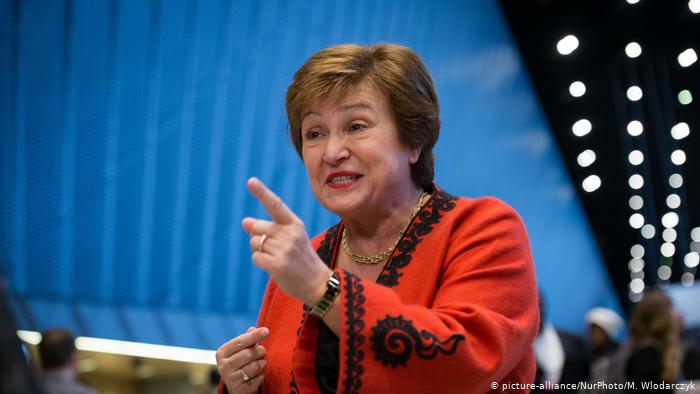Ghana’s fiscal policy has been characterised by recurrent periods of overspending, the International Monetary Fund (IMF) has stated in a statement after approving the $3 billion bailout package for Ghana to revive its economy.
According to the Fund, past budgets have been marked by overly optimistic forecasts despite the existence of a fiscal council.
It explained that the fiscal rules adopted in 2019 lack a debt target and feature an overly complex double operational rules system, with poorly defined escape clauses and no effective enforcement mechanisms.
It said “Ghana’s fiscal framework is also weakened by persistent challenges in public financial management. Large revenue earmarking to statutory funds and retention of internally generated funds are creating significant budget rigidities.”
Again it mentioned that “statutory funds have independent governance structures and are responsible for a large share of capital expenditures (estimated at 70% of their spending). Spending by most statutory funds and IGF-reliant institutions is not integrated with the budget planning system (Hyperion) and the expenditure accounting and control system (GIFMIS), contributing to severe deficiencies in expenditure controls”.
Government committed to addressing weaknesses
However, the Fund said the government is committed to addressing these Public Financial Management weaknesses and to strengthen the fiscal framework and institutions under the programme.
“All central government expenditure will be integrated into the budget planning and accounting systems To this end, several important statutory funds (GETFund, Road Fund, and District Assemblies Common Fund) have started reporting their spending budgets in Hyperion at a disaggregated level to use all functionalities of GIFMIS (prior action)”, it disclosed.
“Statutory funds will be reformed and rationalized. The authorities are in the process of hiring an external consultant to undertake a comprehensive review of all the statutory funds. The objective is to (i) evaluate their spending and assess efficiency, value for money and relevance, as well as alignment of the earmarking formulae with spending needs”, it added.
Revenue mobilisation weak
The Fund also said Ghana’s fiscal problems are rooted in structurally weak domestic revenue mobilisation.
“Ghana’s tax-to-GDP ratio has been low compared to peers, with non-oil revenues stagnating in recent years. Tax policy design suffers from widespread tax expenditures (estimated around 4% of GDP), especially in VAT, and underexploited taxes (property tax, excises). Weaknesses in revenue administration continue to be reflected in limited compliance and recoveries”.
To address these challenges and achieve the programme’s revenue mobilisation objectives, the Fund said the government are preparing a Medium-Term Revenue Strategy (MTRS). This strategy will focus on tax policy and revenue administration measures necessary to reach the authorities’ programme revenue objectives over the 2023-26 period.
The reforms will also aim at further strengthening revenue administration.
With technical support from the IMF, the government is expected to accelerate the procurement of the Integrated Tax Administration System (ITAS) and fully operationalise the system by end-2023 (structural benchmark).
Latest Stories
-
IMF board to disburse $360m to Ghana in December after third review
4 mins -
Former Bono Regional NPP organiser donates 13 motorbikes to 12 constituencies
10 mins -
Securities industry: Assets under management estimated at GH¢81.7bn in quarter 3, 2024
15 mins -
Gold Fields Ghana Foundation challenges graduates to maximise benefits of community apprenticeship programme
2 hours -
GBC accuses Deputy Information Minister Sylvester Tetteh of demolishing its bungalow illegally
2 hours -
Boost for education as government commissions 80 projects
2 hours -
NAPO commissions library to honour Atta-Mills’ memory
2 hours -
OmniBSIC Bank champions health and wellness with thriving community walk
2 hours -
Kora Wearables unveils Neo: The Ultimate Smartwatch for Ghana’s tech-savvy and health-conscious users
2 hours -
NDC supports Dampare’s ‘no guns at polling stations’ directive
2 hours -
Police officer interdicted after video of assault goes viral
3 hours -
KNUST’s Prof. Reginald Annan named first African recipient of World Cancer Research Fund
3 hours -
George Twum-Barimah-Adu pledges inclusive cabinet with Minority and Majority leaders
4 hours -
Labourer jailed 5 years for inflicting cutlass wounds on businessman
4 hours -
Parliament urged to fast-track passage of Road Traffic Amendment Bill
4 hours

